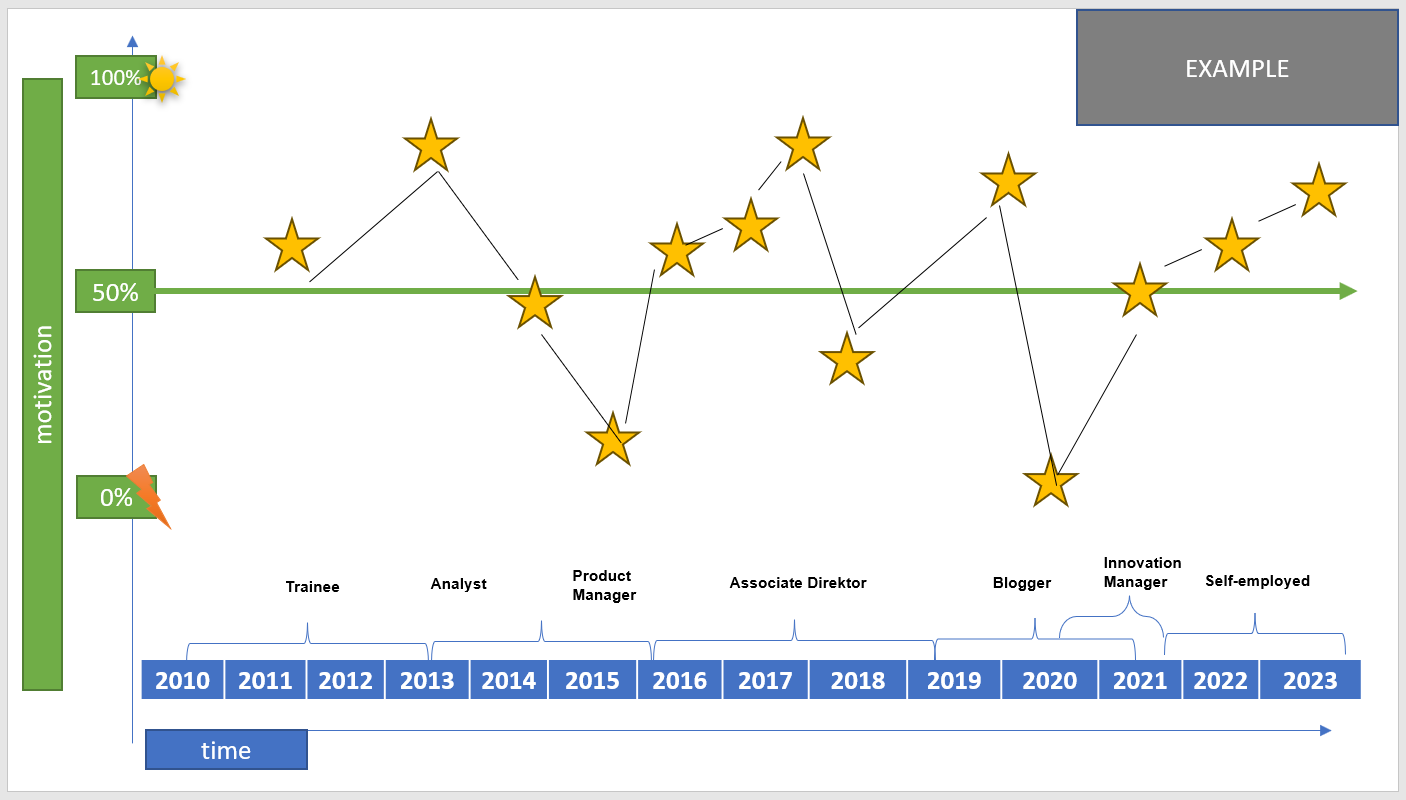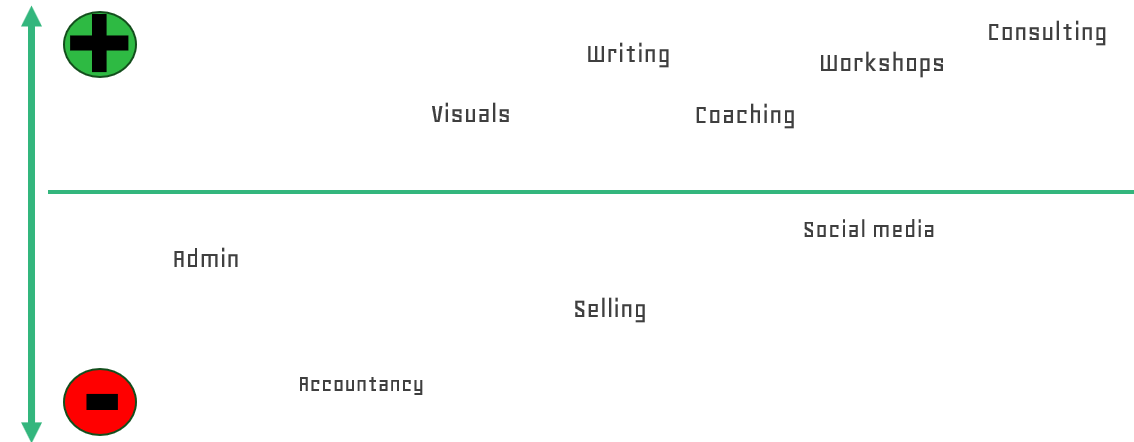Wake up, Neo.
The Matrix has you…
Follow the white rabbit.
Knock, knock, Neo.
Like Matrix had Neo, your work has you. Knock, knock. Do you follow the career you wanted, or do you feel you may need to wake up?
The end of the year is a suitable time for reflection. Where are you? Where do you want to be? Let us find out.
Career inventory
Career does not have to be linear. You go through steps and stages that you probably did not even anticipate. Some moments you may feel stuck. Other times, you are flying high on the hype.
Do a simple career trajectory exercise. Uncover what led you where you are now. You have to draw time and motivation to two axes. Break it based on years in position and reflect on what motivated you vs. not.
Tips on this exercise:
Think when you were at your best and your worst and why. It is common one role motivated you at the beginning and drained you at the end.
Identify if there is any pattern that demotivates you (e.g., team atmosphere, no developmental opportunities, low salary, etc.)
What impacted your decision to change a job? Why did you accept the offer? Why did you crave promotion?
The outcome of this exercise is to have a list of what you like and what motivates you vs. what you don’t like and what demotivates you. Highlight these in the inventory. As, they might be important for the coming year.
List top energy-giving and draining activities.
Now, when you look at your career inventory, think about ten things that are giving you energy or that are draining you out.
What is it specifically? Put down categories and examples.
I, for instance, love working with people. Having workshops, coaching, consulting, and running leadink content and community. It is fulfilling to help people solve their problems and support their efforts!
At the same time, I do not like doing admin work. It is repetitive and not creative. Also, social media is draining my energy. Sites need a lot of maintenance, and I am not talking about trolls and negativity you can encounter there.
When you have your activities listed, think about what you mostly do. Does it make you happy? If I was doing social media full-time, I would be tired and drained. Working without direct interaction would not make me happy.
How about you? Does your daily agenda make you happy? Or do you do a job that you don’t find interesting or challenging? If you do a lot of tasks you don’t enjoy, your motivation can sink.
What ratio of these tasks do you want? 50/50? 70/30? What is your ideal?
Now, create a mind map.
Go back to your notes about your career so far and energy-giving tasks. Answer a question: Image your next career step. What does it look like?
To create a mind map, the main topic, idea, or theme is in the middle. Put it in the center of a page.
Ideas and associations branch out. You can add relationships between associations. Color ideas based on branch level or that stick out for you.
The benefit of mind mapping is that it might lead to the formation of new associations and opportunities. Always look at the outside branches. They frequently bring great ideas and solutions to your core theme.
Take three ideas and create plans
Career review is not just about creating drastic changes to what you do. But perhaps to do more of what you like and reduce what you don’t enjoy.
Based on the previous exercise, pick three ideas that resonate with you and create three plans:
Wild plan: The most challenging idea you may have about your career. (E.g., switching fields, going back to school, taking a sabbatical, etc.)
Challenging yet motivating plan: What do you want to change and feel fairly comfortable with? E.g., getting a promotion, considering whether to change jobs, etc.
Safe plan: You want to make only minor changes. E.g.,
Each plan should have 1 month, 3 months, 6 months, 9 months, and 12 months ideas.
If you choose No. 1, what do you expect to happen in these five buckets? For instance,
1 month: Quit your current job and enroll in a programming course.
3 months: Finish the first programming course and join the next one.
6 months: Go to a programming boot camp focused on AI.
9 months: Adapt LinkedIn and CV to start looking for a new job.
12 months: Have a new job as an AI programmer.
While writing your ideas down, always ask yourself these questions:
Do I have what it takes? Do I have the skills for that?
Is my idea good enough? Will I succeed?
Will this be meaningful for me?
When you have all three plans in front of you, which one tickles your mind the most? What would help you feel less stuck and happy in your career? No need to be shy. Say it out loud. No idea is too wild. No safe option is too bad.
Make a plan for the coming year
Some feel they have yet to find their right career path. Others wish to change careers or start their own business.
Are you puzzled about what you should do? Do you wonder what's next for you? Try these exercises. They might help you reflect on your career so far and show you what direction you can take.
If you are happy, great! If not, you have an option to change it. Use it.








